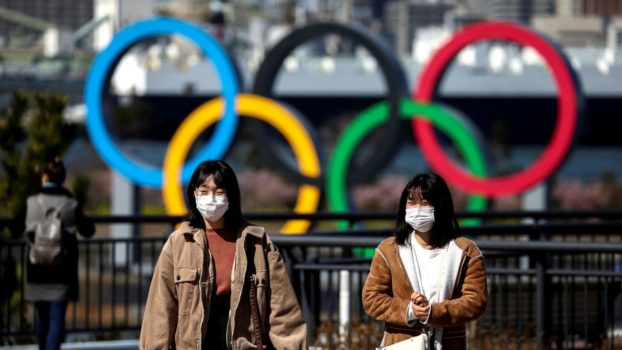 The 2020 Olympics are due to open in Tokyo on July 24 but with coronavirus sweeping the world, there is growing concern that the games will either be postponed or even cancelled.
The 2020 Olympics are due to open in Tokyo on July 24 but with coronavirus sweeping the world, there is growing concern that the games will either be postponed or even cancelled.
Japanese officials are becoming increasingly concerned that the country’s dream of hosting the Tokyo 2020 Olympics could be dealt a fatal blow due to the spread of the new coronavirus,
International Olympic Committee (IOC) President, Thomas Bach said late last month that the IOC was “fully committed” to holding the July 24 to August 9 games on schedule.
Organisers said in December the games were expected to cost some 1.35 trillion yen ($12.35bn), but that figure did not include an estimated three billion yen ($27.8m) for moving the marathon and walking events from Tokyo to the northern city of Sapporo to avoid the summer heat.
Most of the domestic spending on the Olympics has been done, so a cancellation would have minimal effect in that regard, economists said.
A Bank of Japan study in 2016 estimated games-related spending would peak at 0.6 percent of gross domestic product (GDP) in 2018 and be less than 0.2 percent of GDP in 2020, research consultancy Capital Economics noted.
Tourism, a major contributor to recent Japanese growth, could take a hit, although economists said the greater threat was from the coronavirus spread itself.
The power to cancel the Olympic Games formally rests with the IOC. The contract signed between the IOC and Tokyo provides that the IOC can withdraw the organisation of the Games from the host city “if the safety of the participants is seriously threatened”.

PSG Secures Champions League Semifinal Spot With Victory Over Barcelona
Borussia Dortmund Makes Historic UEFA Champions League Semifinal Breakthrough
Bayer Leverkusen End Bayern Munich’s Bundesliga Dominance With Historic Title Win
Super Eagles Triumph In ‘Jollof Derby’ With 2-1 Victory Over Super Rivals, Black Stars